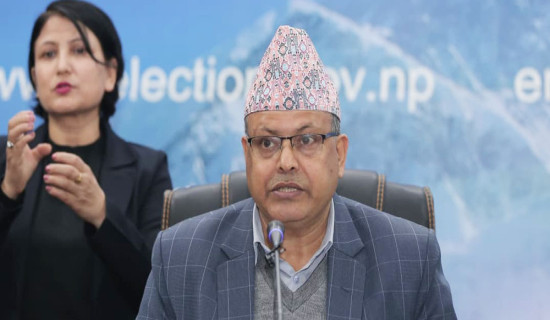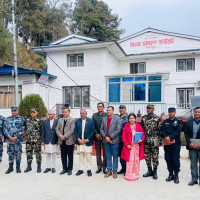- Saturday, 28 February 2026
Foreign Job Ordeals
Foreign employment remains the backbone of the Nepali economy. This is illustrated by the heavy reliance on foreign remittances earned by Nepali migrants abroad. However, a lack of safe and dignified foreign employment makes this incentive not so attractive.
With the proliferation of globalisation and the opening up of the international labour market, foreign employment has been pervasive in Nepal as well as many other countries. Major destinations for Nepali youths comprise Gulf countries like Saudi Arabia, Oman, Kuwait and the United Arab Emirates (UAE). Malaysia, South Korea and Japan are other top labour markets receiving Nepali migrant workers. Of 149 countries that are open for Nepali workers, Nepal’s bilateral labour relations are limited to only 10.
There are several major problems faced by the Nepali workers abroad. They include discrimination, violence, low or no wages, insufficient or a lack of knowledge about the laws and regulations of the host countries and detentions. Data obtained from the Ministry of Labour, Employment and Social Security and Nepali embassies shows that a total of 1,347 Nepalis are in foreign jails. Of this, 810 Nepalis are detained in Saudi Arabia, 243 in the UAE, 67 in Qatar, 51 in Kuwait, 12 in Oman, one in Bahrain, 28 in South Korea 28, 24 in Japan and 163 in Malaysia. It is said that the actual figures could be much higher.
The reasons for putting Nepali migrants in detention centres are varied. Some are found detained without clear evidence of wrongdoing, too. But the core issue here lies with them is their lack of knowledge about the destination nation’s laws and social and cultural practices. For instance, the majority hardly know the ‘blood money’ practice in the Arab countries. Also, they are not able to communicate due to weak linguistic abilities. All of this is topped by the weak institutional capacity of the Nepali missions abroad. Most Nepali diplomatic missions do not have adequate financial and human resources. They also lack the data, recording the situation of Nepali labourers abroad. Likewise, the missions are criticised for not supporting the detainees effectively.
Many captives are also not keeping in touch with their family members and are forced to remain in jail. Nepali legal officers are not present to look into and manage these issues. And the legal fees of hiring a lawyer in a foreign land are very expensive. The government’s responsibility should not just be limited to establishing bilateral relations. Rather, Nepali missions abroad should have the core responsibility of supporting Nepali labourers and ensuring that their right to defend is protected mandatorily.
We require major reforms in this matter. Firstly, embassies should keep tabs on the Nepali citizens who are currently detained. They should regularly visit them and collect classified data and information in this regard. Translators and legal officers must be hired by the Ministry of Foreign Affairs in the labour-receiving countries. Nepal, in its diplomatic initiatives, must negotiate with the countries, focusing on sentence transfer provisions. Such provisions must be enforced to better rehabilitate the Nepali migrant detainees and also to prevent the death penalty.
Improving systemic barriers is key to ensuring a safe and dignified foreign employment. Individuals should also make efforts to thoroughly understand the rules and regulations of the country they are travelling to. And, as an extension of the government, missions should be more engaging and energetic in this. This can prevent any instance of injustice and ensure that the detainees have a full understanding of the judicial procedures.

















